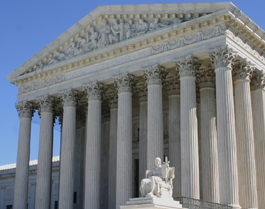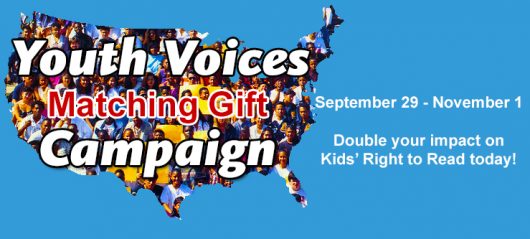Last week, the Supreme Court announced it would hear the case Lee v. Tam. The case involves the constitutionality of provisions of the 1946 Lanham Act, which gives the US Patent and Trademark Office (PTO) the power not to register potential trademarks that “may disparage […] persons, living or dead, institutions, beliefs, or national symbols, or bring them into contempt or disrepute.”
The lawsuit was brought by a musician who wanted to trademark the name of his band: The Slants. PTO refused to grant the trademark, informing the musicians that the band’s name disparaged Asians. The Slants, who are themselves Asians, believe that PTO’s decision, which referenced the Lanham Act, violates their First Amendment rights.
The US Court of Appeals for the Federal Circuit agreed. The majority opinion noted that the government cannot refuse to register a trademark “because it disapproves of the expressive messages conveyed by the marks.” It continued: “The government regulation at issue amounts to viewpoint discrimination.”
The opinion gets at the free speech concerns around the Lanham Act clause: that it violates a fundamental premise of First Amendment law “that no official, high or petty, can prescribe what shall be orthodox in politics, nationalism, religion, or other matters of opinion…. “
According to the government’s brief, PTO “does not allow its examiners to rely on their own subjective views, but rather directs them to consider “whether […] ‘a substantial composite of the referenced group’ would find the mark disparaging.” For instance, if evidence indicates that “a substantial composite” of Asians would be offended by the name The Slants, examiners should refuse to issue a trademark.
The government’s argument is troubling on a number of grounds. First is the question of whether the clause is applied arbitrarily. Although the government claims that the process is “an objective, established test,” the Slants claim that the “PTO denied registration to HAVE YOU HEARD SATAN IS A REPUBLICAN, because it disparaged the Republican Party, but did not find THE DEVIL IS A DEMOCRAT disparaging.”
Second, even if the rule were applied consistently, it would amount to a sort of heckler’s veto, allowing offended listeners to effectively penalize legally protected speech. The heckler’s veto is incompatible with the First Amendment, which is intended to promote vigorous public discussion and debate even on highly controversial matters. It is closely related to another fundamental constitutional rule, that First Amendment rights are not subject to majoritarian principles: “fundamental rights may not be submitted to vote; they depend on the outcome of no elections.”
However, the PTO has applied the disparagement clause even in cases where there is no proof that a majority of the relevant group does in fact feel disparaged by the trademark. For example, in 2014 the PTO stripped the Washington Redskins of its trademark, a ruling that was upheld by a federal trial judge. However, a 2004 poll found that only 9% of Native Americans found the team’s name offensive. A 2016 poll had nearly identical findings.
The ability to obtain a trademark has potentially far-reaching economic implications. For example, in the Washington Redskins case, the loss of trademark protection means that other companies can legally manufacture merchandise with the team’s name and logo.
The Washington Redskins’ appeal to the US Court of Appeals for the 4th Circuit is pending. It is likely that the Supreme Court’s decision in the Slants case, if it comes first, will resolve the key First Amendment question raised in both cases.
—————————————-
Every gift supporting Youth Free Expression and Kids’ Right to Read made before November 1, 2016, will be matched dollar for dollar! Don’t miss this opportunity to double your impact on First Amendment advocacy. Help NCAC make Youth Voices heard today with a contribution of $10, $20, $40, or more.



